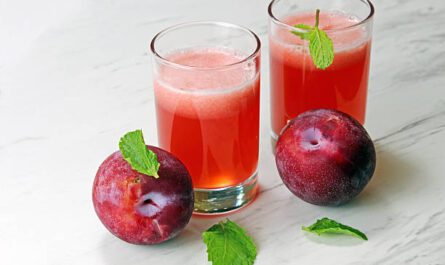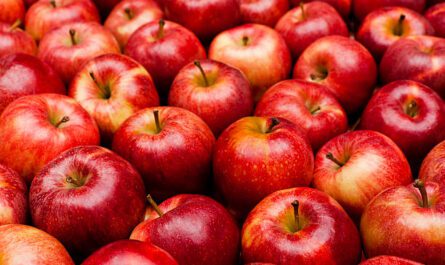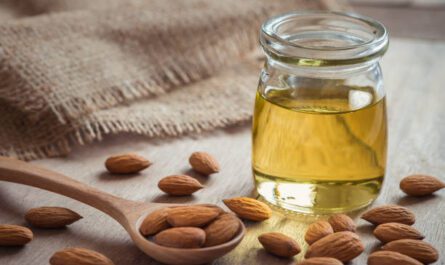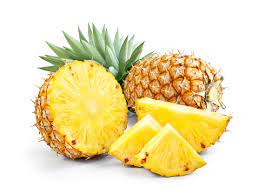Nutritional Benefits of Eating Mangoes for Health
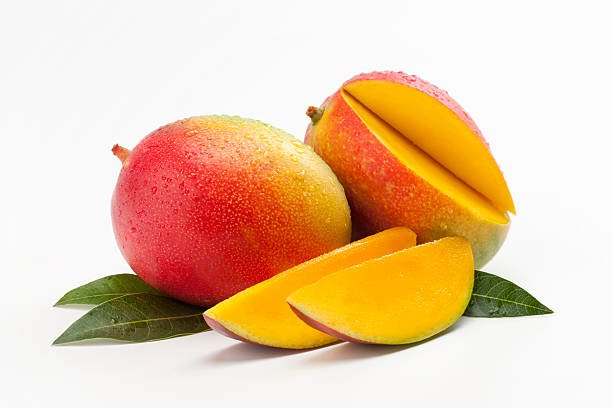
Introduction:
The mangoes are called the king of fruits. It is the most eaten and loved fruit in the world. It is delicious, sweet, and aromatic, and everyone likes it. Mangoes are native to Pakistan and Southeast Asia and have been cultivated for over 4,000 years.
There are hundreds of varieties of mangoes worldwide, each with distinctive tastes, shapes, sizes, and colours. Mangoes are not only a delicious fruit but also an impressive nutritional fruit. They have been an essential crop in Pakistan for centuries. Today, these sweet fruits are an integral part of Pakistani cuisine that is popular worldwide. Mangoes can weigh from a few ounces to more than 5 pounds, depending on the variety.
Mango Tree:
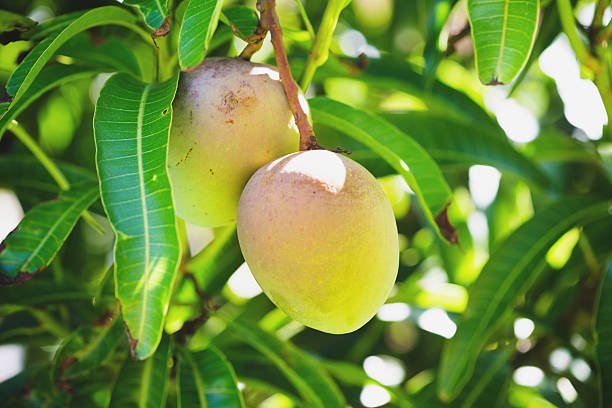
The mango tree is an evergreen, fast-growing, and long-lived tree. It is a robust tree with a large canopy and an almost circular projection. Its leaves are perennial, dark green, pointed, and shiny, while its flowers are in panicles of about 3000 white, red, or yellow-green flowers.
In tropical regions, mango trees can reach a height of 30-40 meters. At the same time, their growth rate is continuously low in subtropical areas. There are hundreds of varieties of mango fruit, each with a distinct taste, shape, and size. Each fruit is 5-15 cm long and 4-10 cm in diameter. It usually weighs between 150g and 750g, reaching around 390g in the Sicilian mango fruit. A mango tree can bear fruit for 50 to 60 years.
The outer skin of unripe mangoes is smooth and green. Still, the ripe fruit turns golden yellow, crimson red, yellow, or orange-red, depending on the cultivar. The endocarp is a sizeable oval part that contains a single seed.
The pulp (mesocarp) is orange-yellow in colour and rich in many soft fibres. Mangoes are famous worldwide because of their pleasant, sweet, slightly sour taste and attractive aroma. They can be eaten fresh or used in chutneys, pickles, salads, dry products, purees, nectars, and canned or frozen slices.
Regardless of the type of Mangoes you buy, these fruits offer some impressive health benefits. Although mangoes were historically only available at the end of the dry season, they can now be found in grocery stores year-round.
This incredible, delicious, and fragrant fruit is Pakistan’s Unique gift, and it is the king of all fruits. It is the royal fruit of the summer season, which lasts from June to the end of August. The trunk of the mango tree is straight, sixty to seventy feet in height, and fifteen feet in circumference. A mango tree bears fruit for fifty to sixty years.
Raw mangoes are sour, but after ripening, they become lovely. They are served sliced or cubed and garnished in plat. Jams, pickles, and chutneys are made from raw mangoes. Ripe mangoes are delicious and beautiful. Their juice and milkshakes are drunk with great enthusiasm. Raw mangoes are green, and ripe mangoes are red and yellow. There are wide varieties of mangoes with different flavours, sizes, and aromas. Trusted source
All varieties of Pakistani mangoes are famous and loved worldwide and are in high demand because they are lovely, fragrant, tasty, and of good quality. In Pakistan, Khanewal and Multan mangoes are very good, delicious, sweet, and trendy. They are also in great demand in other countries. This tastiest and best-quality fruit from Pakistan is exported to many countries, including the Middle East, Europe, and America.
Effect of Eating Mangoes:
Eating Mangoes has a heating effect, so it should be eaten cold and drunk with milk or lassi.
Nutrition:
They are a good source of folate, an essential nutrient for healthy cell division and DNA replication. Folate is necessary for pregnant women, as it helps prevent congenital disabilities of the brain and spine, known as neural tube defects (NTDs).
Mangoes are an excellent source of nutrients:
| Nutritional value per 100 g (3.5 oz) | |
|---|---|
| Energy | 250 kJ (60 kcal) |
Carbohydrates | 15 g |
| Sugars | 13.7 |
| Dietary fiber | 1.6 g |
Fat | 0.38 g |
| Saturated | 0.092 g |
| Monounsaturated | 0.14 g |
| Polyunsaturated omega‑3 omega‑6 | 0.071 g 0.051 g 0.019 g |
Protein | 0.82 g |
| Vitamins | Quantity %DV† |
| Vitamin A equiv. beta-Carotene lutein zeaxanthin | 6% 54 μg 6% 640 μg 23 μg |
| Thiamine (B1) | 2% 0.028 mg |
| Riboflavin (B2) | 3% 0.038 mg |
| Niacin (B3) | 4% 0.669 mg |
| Pantothenic acid (B5) | 4% 0.197 mg |
| Vitamin B6 | 7% 0.119 mg |
| Folate (B9) | 11% 43 μg |
| Choline | 1% 7.6 mg |
| Vitamin C | 40% 36.4 mg |
| Vitamin E | 6% 0.9 mg |
| Vitamin K | 4% 4.2 μg |
| Minerals | Quantity %DV† |
| Calcium | 1% 11 mg |
| Copper | 12% 0.111 mg |
| Iron | 1% 0.16 mg |
| Magnesium | 2% 10 mg |
| Manganese | 3% 0.063 mg |
| Phosphorus | 1% 14 mg |
| Potassium | 6% 168 mg |
| Selenium | 1% 0.6 μg |
| Sodium | 0% 1 mg |
| Zinc | 1% 0.09 mg |
| Other constituents | Quantity |
| Water | 83.5 g |
| †Percentages estimated using US recommendations for adults, except for potassium, which is estimated based on expert recommendations from the National Academies. | |
One of its most impressive nutrition facts is that just 1 cup (165 grams) of fresh mangoes provides nearly 67 percent of the daily value for vitamin C.
Mangoes are also a good source of copper and folate minerals, especially during pregnancy, as they contribute to the healthy growth and development of the fetus.
Summary:
They are low in calories but high in nutrients – especially vitamin C, which supports immunity, iron absorption, and cell growth and repair.
Numerous Health Benefits To Eating Mangoes:

Eating the mangoes has many benefits for your health. It is helpful in every form, from flower to fruit. Gum is extracted from its flowers, and oil is extracted from the kernel. Pickles, chutneys, and jams are made from the raw fruit. Ripe mango is lovely and is eaten with great enthusiasm in different ways. It also makes fruit chaat.
Its juice and milkshake are also made. Taking it in the morning benefits human health and strengthens the heart and mind. It produces fresh and clean blood and restores the body’s energy. It contains vitamins A, B, C, E, K, thiamin, riboflavin, niacin, and folate, vital for human health. Potassium, magnesium, calcium, manganese, and iron are found.
- Eating mango increases blood.
- It strengthens the heart, brain, lungs, stomach, intestines, kidneys, bladder, teeth, and eyes.
- Constipation and diuretic.
- It is a powerful food for pregnant women that corrects anemia.
- It strengthens bones.
- It is helpful for eyesight.
- Sweet mango strengthens the organs of the head, soul, stomach, bladder, lungs, kidneys, and respiratory organs.
- It clears the complexion and purifies the blood.
- It relieves headaches, piles, diarrhea, colic, and cough.
- It makes the body fat.
- It removes lethargy and increases appetite.
- Quenches thirst.
- Beneficial for insomnia.
- It is also helpful in tuberculosis.
- Eating mangoes gives relief.
- Raw mango soothes the bile and increases appetite.
- It isn’t good for phlegmatic and business mood.
- It breaks down bladder stones.
- Mangoes jam strengthens the heart and stomach.
- Drinking milk or milk lassi after eating mango makes the body very strong.
- Its use in diarrhea is harmful to health.
- According to medical experts, mango is rich in vitamin E, which keeps the skin fresh and prevents pimples from appearing on the face.
- The vitamin C present in it reduces the amount of cholesterol in the blood.
- Its vitamin A does not weaken eyesight. It also contains adequate natural sweetness, not harming people with diabetes.
- Mango fiber cleanses the intestines and helps maintain a healthy
- digestive system.
- It contains antioxidants that reduce the risk of colon and blood cancer.
- Due to its high vitamin C content, raw green mango is also an effective treatment for blood disorders.
- It increases the elasticity of the blood vessels and helps form new blood cells.
- Its use increases the absorption of food iron while blood flow is stopped.
- It increases resistance in the body against tuberculosis, anemia, cholera, and dysentery.
Consuming mango and milk is an excellent and ideal remedy for weight loss. Mango contains sugar but lacks protein, while milk contains protein but no sugar. Combining these two removes each other’s deficiencies, so make a milkshake of mango and milk and use it for at least one month.
Benefits of Drinking Peach Juice
Health Benefits of Eating Mangoes:
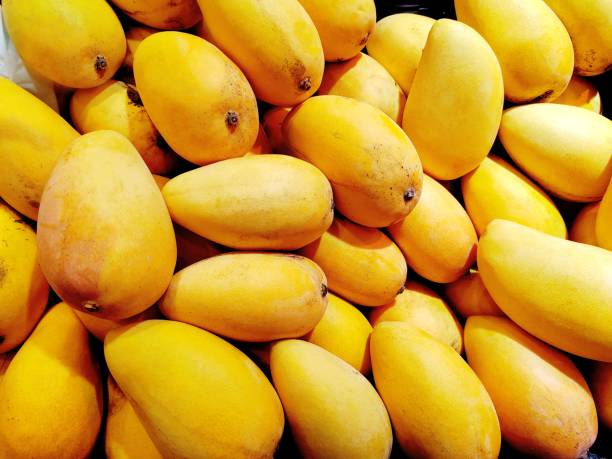
The vitamins, minerals, and antioxidants in mangoes can provide essential health benefits. Vitamin K, for example, helps your blood clot effectively and helps prevent anemia. It also plays a vital role in strengthening your bones.
Mangoes are also rich in vitamin C, which is essential for building blood vessels and healthy collagen and helping you heal.
Lower Risk of Cancer:
Mangoes are rich in antioxidants, natural substances that protect your cells from damage. Mangoes contain a particular type of mangiferin that protects against cancer-causing damage. “No one food can completely protect you from cancer, but mangoes have cancer-fighting nutrients,” experts say, adding that eating mangoes and other produce instead of processed foods can reduce your cancer risk.
It can be an effective way to reduce overall risk. Mangoes are rich in beta-carotene, a pigment important for the yellow-orange color of the fruit. Beta-carotene is an antioxidant, one of the many components found in mangoes. The antioxidants in mangoes are essential in fighting free radicals that can damage your cells and potentially lead to cancer.
For Heart And Brain Health:

Eat sweet mangoes for a healthy heart. Mangoes contain vitamin C and potassium and are also a good source of fiber, which helps keep the heart’s arteries healthy and reduces the risk of heart disease. Mangoes are also helpful in supporting your cardiovascular system.
They are a great source of magnesium and potassium, linked to lowering blood pressure and a regular pulse. Additionally, mangoes are a source of a compound called mangiferin that protects the heart from high blood pressure.
At the same time, vitamin C effectively reduces the risk of heart disease. Moreover, as vitamin C helps the body absorb iron, it also avoids the risk of anemia. A hearty mango salad with some iron-rich foods is a great way to boost health.
An essential function of vitamin C, and by extension, mango plays a vital role in preserving memory. As we age, our memory begins to deteriorate, but in the case of dementia, the neurodegeneration is severe and irreversible. However, vitamin C helps prevent this condition. , which early research suggests may reduce heart inflammation. Trusted source
For Digestive And Intestinal Health:

Mangoes can help stabilize your digestive system and gut health. They offer digestive compounds and dietary fiber, which can help you avoid constipation. Digestive compounds can help dissolve other foods in your stomach, helping to break down complex starches. Meanwhile, the fiber in mangoes may be more effective in relieving constipation than equivalent fiber supplements.
They contain fatty acids that promote a healthy gut and facilitate fluid secretion, which improves digestion. The phytochemicals in mangoes also have a protective effect on the stomach. They help reduce inflammation in the intestines, which is common in diseases like ulcerative colitis. Ulcerative colitis is an inflammatory bowel disease in which the lining of the colon and rectum becomes inflamed.
Antioxidants Are:
Antioxidants are essential for health. Many reactions around the body produce free radicals; our environment also produces these dangerous compounds. Free radicals damage healthy cells in the body and can cause cancer and heart disease. Antioxidants help neutralize these free radicals and thus prevent the risk of chronic and terminal diseases.
For Diabetes:
People with diabetes may not enjoy mangoes as much as they would like, but eating mangoes can reduce their risk of diabetes. Mangoes offer benefits that include reducing the risk of obesity, lowering blood fat, and helping to prevent diabetes.
For High Blood Pressure:

The Mangoes are sweet and sour fruits usually rich in vitamin C. One cup of mangoes provides about 76% of the daily requirement. Vitamin C is good for keeping blood pressure moderate in the body, and it is abundant in mangoes. People with high blood pressure can enjoy cold mangoes and know that their vitamin C helps relax their arteries so their blood can flow freely and easily.
They are also a good source of potassium. Thus, it helps maintain fluid balance, which your bloated body may need. Potassium is also effective in controlling high blood pressure in the body. Sugar is very harmful to health.
It causes high blood sugar levels, brain damage, inflammation around the body, and weakened immunity. Instead of eating sweets sweetened with sugar, one should choose the healthy option of mangoes. However, at the same time, continue to take a holistic healing approach with the treatments prescribed by the doctor.
Natural Sweeteners:
The natural sugars in mangoes certainly do not pose any health risks when consumed in moderation. It is one of the most exciting health benefits of mangoes. Sugar is very harmful to health. It causes high blood sugar levels, brain damage, inflammation around the body, and weakened immunity. Instead of eating sweets sweetened with sugar, one should choose the healthy option of mangoes.
Controls Weight:

Many people believe that mangoes are fattening and should be avoided. However, this idea is only partially correct. Eating more of them increases your overall calorie intake, but when in moderation, they help with weight control.
It is often believed that mangoes cause obesity, but this is a massive misconception that people hold. In contrast, one cup of mango contains only 0.6 grams of fat. Additionally, these ‘good’ fats are monounsaturated and polyunsaturated.
Fiber isn’t just good for your gut. It can also benefit your waistline. One study found that mangoes can help control appetite, which can help you stick to your healthy eating goals.
Experts say that mangoes take longer to digest than low-fiber foods. “Therefore, you’re less likely to experience fatigue and lack appetite when you eat processed or less nutritious foods, such as chips or crackers. I give you some extra nutrients.
The phytochemicals in mangoes facilitate the suppression of fat cells and genes in the body. Moreover, mango peels are also beneficial in preventing the formation of fatty tissues in the body.
So, there is no need to deprive yourself of the sweet and juicy bliss. It’s not making you gain weight.
Prevents Constipation:
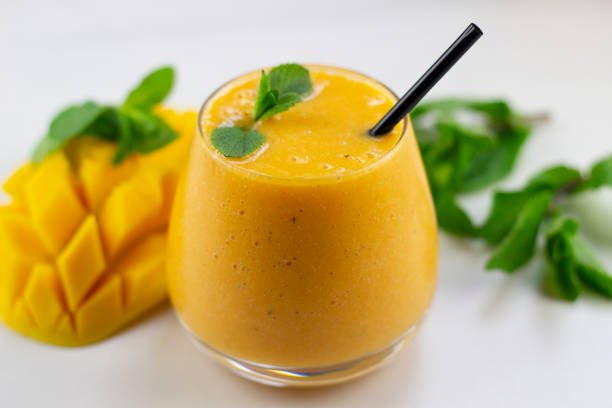
Peeled fruits such as apples are often high in fiber and are thus considered very good for the digestive system. Also, a pulpy fruit like mango is excellent for solving the constipation problem you may have trouble discussing. Mangoes are high in fiber and water, both of which are effective in preventing constipation. The former adds bulk to compounds, making them softer and more accessible to pass through the drain.
Skin and Hair Health:
Another health benefit of mangoes is their good health for your skin and hair. Mangoes are not only taste great, but they are also perfect for your health. Vitamins A, C, and E are antioxidants that are essential for healthy hair and skin. These vitamins help fight the damage your skin does every day from the environment.
Applying these vitamins directly to your skin can be beneficial, which is why many skin care products contain them. But you also desperately need these nutrients in your diet. They are rich in vitamins that are essential and beneficial for general health. They are rich in vitamin A, which helps produce sebum, which makes hair shiny instead of dry and dull.
It also moisturizes the scalp. The vitamin C present in mangoes is also great for skin rejuvenation. It also promotes the growth of collagen, an essential protein in the skin that keeps it tight, hydrated, and youthful-looking. The antioxidants in mangoes help prevent damage to hair follicles from oxidative stress.
Vitamins are needed to support your skin’s health, but it’s best to get them from whole foods, not supplements. Too many of these vitamins can be harmful and interact with medications. They take longer to break down in the body and are not as easily absorbed in supplement form. Eating mangoes gives you a healthy dose of these nutrients without the risks of supplements.
Boosts Immunity:
Vitamin C is an excellent antioxidant. It boosts immunity, which is especially important during epidemics. Mangoes also help reduce inflammation in the body. Mangoes won’t solve any health problem alone, but they have superfood power. When you eat mangoes as part of an overall healthy diet
Help Lower Cholesterol:
The soluble fiber in mangoes can help lower total cholesterol and LDL cholesterol (the “bad” cholesterol that forms plaque in your blood vessels, which blocks blood flow and oxygen). ). The level of soluble fiber in mangoes is not as high as that found in whole grains or fruits with the skin, but it is still beneficial.
Be Aware of Allergic Reactions:
Always wash and peel mangoes before eating them. Although edible, the peel should be avoided because it contains urushiol, a natural oil responsible for the rashes people get from poison ivy and oak.
Some people have an allergic reaction to the skin of a mango, but other fruits do not react at all. If your hands feel itchy while peeling the mangoes, wear gloves to wash and peel them.
When And How To Eat Mangoes?
The best time to eat mango is after the afternoon meal; eating it in the morning is unsuitable.
Before eating, put the mangoes in cold water and eat it cold. But if the mango is native, then the best way to eat it is to suck the mango juice. The method is to cool them first, then gently press them with your hands to soften them and suck them.
They should be eaten to a certain extent. If you overeat, you may get dysentery, so there may be fear of harm instead of benefits, so mangoes should be eaten carefully. Mango juice and milkshakes are also very beneficial and delicious. When drunk with passion, they restore strength quickly, and their effect is cooling.
How to Eat Mangoes:

Mango can be found year-round in grocery stores, health food stores, and occasionally at farmers’ markets. This delicious fruit is sweet with just a hint of tart. When cutting mangoes, it’s essential to watch out for the large, flat seed in the center, which can easily trip the knives.
If you have sensitive skin, peel the mango while holding it with gloves or a handkerchief to avoid direct bites. The pulp of the mango should be soft and bright orange-yellow when it is ready to eat. You can also eat it raw, grilled, or frozen as a dessert.
Whether you eat it for flavor or health, mangoes are a great addition to almost any meal. Here are some ways you can add mangoes to your diet:
- Add the mango to the smoothie.
- Make the mango chutney.
- Grill mangoes as part of a barbecue.
- Try the mango syrup.
- Combine the fish with the mango.
- Use mangoes to make jam.
- Freeze mango cubes and add them to cocktails.
How to Prepare Mangoes?
They are best kept at room temperature. They will cook this way, becoming sweeter and softer. Do not refrigerate them before cooking. Wrapping them in a paper bag or newspaper for three to four days can speed up the ripening process.
How to Store Mangoes?
Underripe mangoes can be refrigerated, which will slow down their ripening process. If fully ripe, they can be kept for up to five days. Once peeled and chopped, they can be stored in an airtight container in your refrigerator for several days. You can freeze them for up to six months.
Dried Mangoes:
Dried mango often comes in chunks, which may contain sulfites to extend shelf life and keep the mango soft. Organic varieties can be stickier and more difficult to eat. Freeze-dried mangoes are plentiful and often sugar-free. Candied or crystallized mangoes are soaked in water and sugar before drying.
Dried Mangoes are sometimes used as a traditional remedy for:
- inflammation
- It boosts the immune system.
- It lowers blood sugar levels.
A few studies support these claims, but more research is needed before dried mangoes can be recommended for such health benefits.
Dried Mangoes Nutritional Information:
Four slices of unsweetened and sulfur-free dried mangoes include:
Calories: 120
Protein: 2 grams
Fat: 0 grams
Carbohydrates: 28 grams
Fiber: 2 grams
Sugar: 20 grams
A good source of dried mangoes are:
Vitamin A
Calcium
iron
Potassium
Many dried fruits are rich in antioxidants, including dried mangoes, a potent food. Antioxidant-rich foods protect against various conditions, including many types of cancer.
Mango Butter:
The source of mango’s rich benefits is its seeds. Mango butter is prepared by extracting the pulp of the mango seed and cooling it into a creamy butter. Mango butter is a fat that comes from the seeds of mangoes – it comes in refined and unrefined forms. Mango butter is semi-solid and melts on contact with the skin. Mango butter, as can shea and cocoa butter, can nourish skin and hair and support overall health. Some forms of mango butter are also edible. Mango butter is added as an ingredient in chocolate and other snacks.
Nutrition of Mangoes Butter:
Eating Mango butter is a rich source of mangiferin. This antioxidant helps reduce the risk of cellular damage that can lead to diseases like cancer. Here are the great resources to be derived from it:
Great resources are listed here:
Vitamin E
Vitamin A
Vitamin C
Copper
Folates












